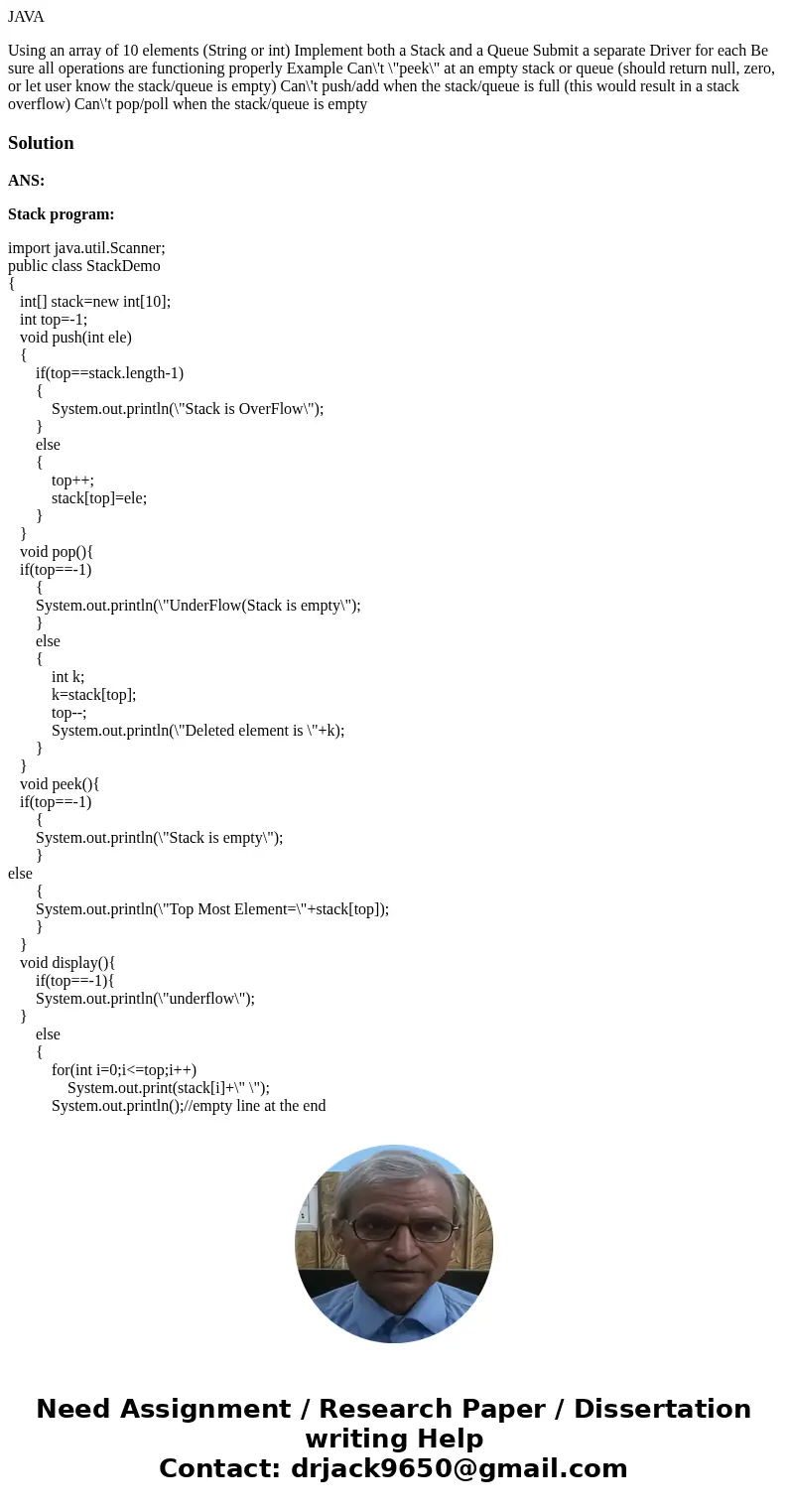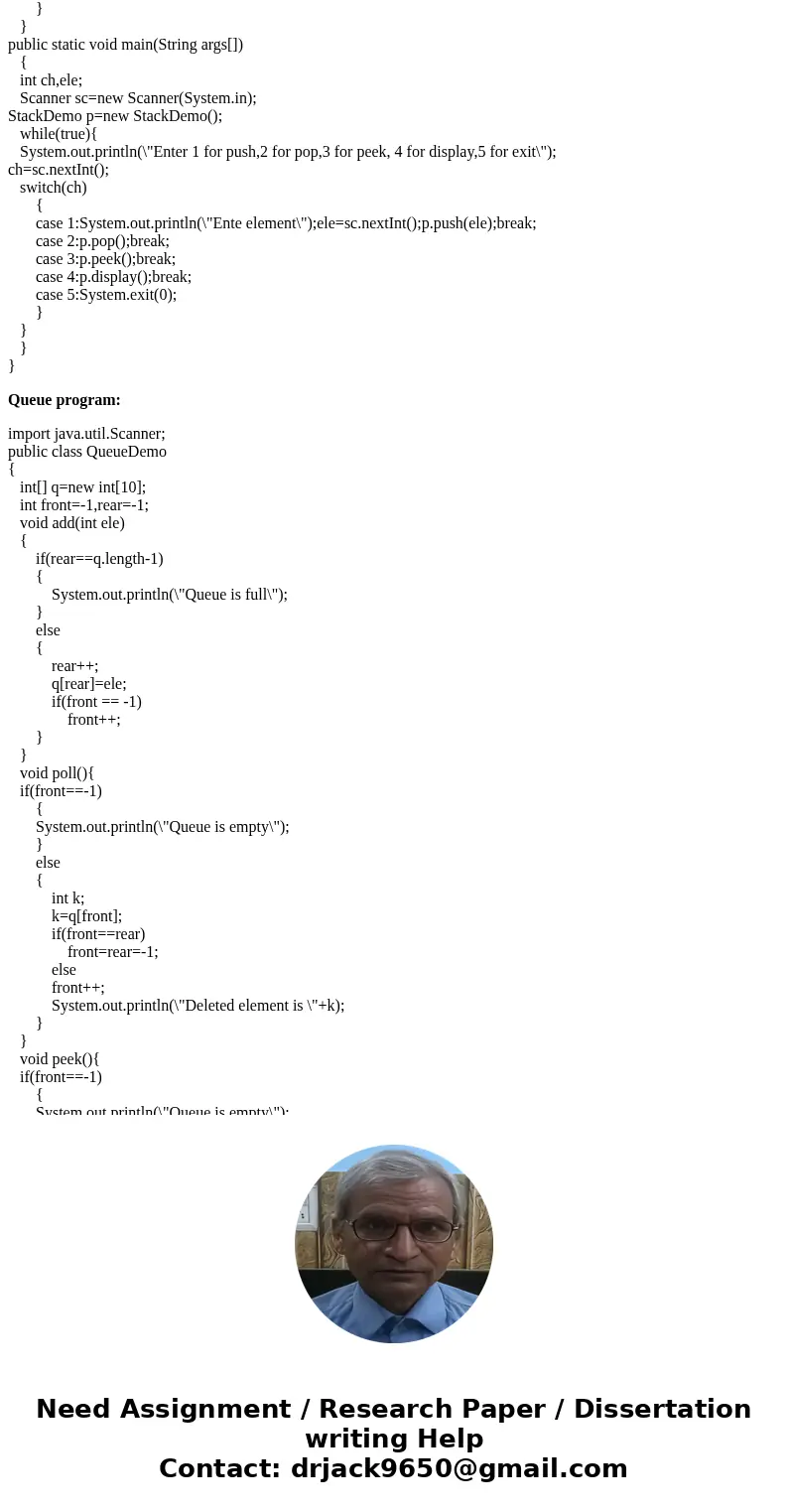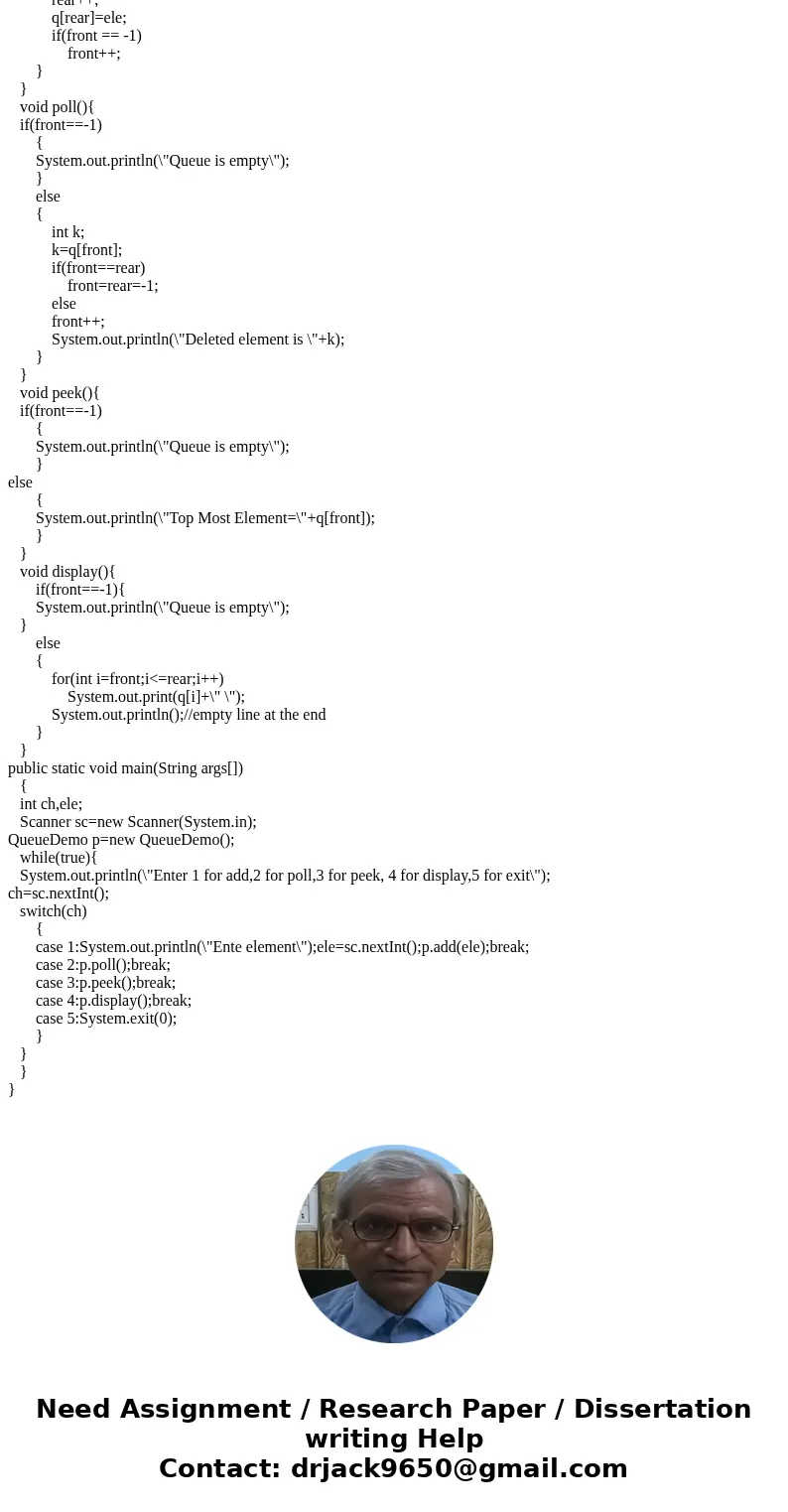JAVA Using an array of 10 elements String or int Implement b
JAVA
Using an array of 10 elements (String or int) Implement both a Stack and a Queue Submit a separate Driver for each Be sure all operations are functioning properly Example Can\'t \"peek\" at an empty stack or queue (should return null, zero, or let user know the stack/queue is empty) Can\'t push/add when the stack/queue is full (this would result in a stack overflow) Can\'t pop/poll when the stack/queue is emptySolution
ANS:
Stack program:
import java.util.Scanner;
public class StackDemo
{
int[] stack=new int[10];
int top=-1;
void push(int ele)
{
if(top==stack.length-1)
{
System.out.println(\"Stack is OverFlow\");
}
else
{
top++;
stack[top]=ele;
}
}
void pop(){
if(top==-1)
{
System.out.println(\"UnderFlow(Stack is empty\");
}
else
{
int k;
k=stack[top];
top--;
System.out.println(\"Deleted element is \"+k);
}
}
void peek(){
if(top==-1)
{
System.out.println(\"Stack is empty\");
}
else
{
System.out.println(\"Top Most Element=\"+stack[top]);
}
}
void display(){
if(top==-1){
System.out.println(\"underflow\");
}
else
{
for(int i=0;i<=top;i++)
System.out.print(stack[i]+\" \");
System.out.println();//empty line at the end
}
}
public static void main(String args[])
{
int ch,ele;
Scanner sc=new Scanner(System.in);
StackDemo p=new StackDemo();
while(true){
System.out.println(\"Enter 1 for push,2 for pop,3 for peek, 4 for display,5 for exit\");
ch=sc.nextInt();
switch(ch)
{
case 1:System.out.println(\"Ente element\");ele=sc.nextInt();p.push(ele);break;
case 2:p.pop();break;
case 3:p.peek();break;
case 4:p.display();break;
case 5:System.exit(0);
}
}
}
}
Queue program:
import java.util.Scanner;
public class QueueDemo
{
int[] q=new int[10];
int front=-1,rear=-1;
void add(int ele)
{
if(rear==q.length-1)
{
System.out.println(\"Queue is full\");
}
else
{
rear++;
q[rear]=ele;
if(front == -1)
front++;
}
}
void poll(){
if(front==-1)
{
System.out.println(\"Queue is empty\");
}
else
{
int k;
k=q[front];
if(front==rear)
front=rear=-1;
else
front++;
System.out.println(\"Deleted element is \"+k);
}
}
void peek(){
if(front==-1)
{
System.out.println(\"Queue is empty\");
}
else
{
System.out.println(\"Top Most Element=\"+q[front]);
}
}
void display(){
if(front==-1){
System.out.println(\"Queue is empty\");
}
else
{
for(int i=front;i<=rear;i++)
System.out.print(q[i]+\" \");
System.out.println();//empty line at the end
}
}
public static void main(String args[])
{
int ch,ele;
Scanner sc=new Scanner(System.in);
QueueDemo p=new QueueDemo();
while(true){
System.out.println(\"Enter 1 for add,2 for poll,3 for peek, 4 for display,5 for exit\");
ch=sc.nextInt();
switch(ch)
{
case 1:System.out.println(\"Ente element\");ele=sc.nextInt();p.add(ele);break;
case 2:p.poll();break;
case 3:p.peek();break;
case 4:p.display();break;
case 5:System.exit(0);
}
}
}
}



 Homework Sourse
Homework Sourse